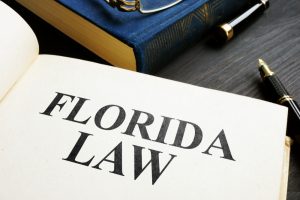 Subrogation professionals must be aware that Florida’s collateral source statute contains a trap for the unwary. Under F.S.A. § 768.76 (6), if a provider of collateral source benefits (e.g., Med Pay or health insurance benefits) does not respond to the insured’s request for a statement asserting the subrogated lien amount within thirty (30) days, the carrier may be barred from recovering its subrogation lien in the matter. The fine print is buried in Florida’s collateral source laws thousands of pages away from laws and case decisions authorizing Med Pay and health insurance subrogation in Florida. Not being aware of it can be fatal to your subrogation aspirations.
Subrogation professionals must be aware that Florida’s collateral source statute contains a trap for the unwary. Under F.S.A. § 768.76 (6), if a provider of collateral source benefits (e.g., Med Pay or health insurance benefits) does not respond to the insured’s request for a statement asserting the subrogated lien amount within thirty (30) days, the carrier may be barred from recovering its subrogation lien in the matter. The fine print is buried in Florida’s collateral source laws thousands of pages away from laws and case decisions authorizing Med Pay and health insurance subrogation in Florida. Not being aware of it can be fatal to your subrogation aspirations.
At common law, the Collateral Source Rule is a rule of damages which states that benefits received by the plaintiff from a source wholly independent of and collateral to the defendant/tortfeasor will not diminish the damages otherwise recoverable by the plaintiff. Any evidence of a plaintiff’s alternative or additional sources of payment for expenses or losses for which damages are sought in a civil action, such as insurance coverage, is excluded as irrelevant. Florida, however, like many states, has modified its Collateral Source Rule. F.S.A. § 768.76 (1999). Florida law provides that a court must reduce any damage award a plaintiff receives by the amount of collateral source benefits that the plaintiff has previously received. However, there is no reduction for collateral sources for which subrogation or reimbursement rights are pursued and enforced. Centex-Rodgers Constr. Co. v. Herrera, 816 So.2d 1206 (Fla. App. 2002); Despointes v. Florida Power Corp., 2 So.3d 360 (Fla. App. 2008). The Collateral Source Rule also provides for payment by the subrogating collateral source provider, of a pro rata share of costs and attorney’s fees incurred. F.S.A. § 768.76(4) (1999). In other words, it is a codification of the Common Fund Doctrine.
 Florida’s collateral source statute contains a dangerous trap for unwary claims handlers and subrogation professionals. Under F.S.A. § 768.76(6), the insured/claimant must send the carrier/provider of the collateral source benefits, by registered or certified mail, notification of his third-party case against the tortfeasor. If the claimant has filed suit against the tortfeasor at the time such notice is sent, a copy of the complaint against the tortfeasor should be sent along with the notice. This notice must include a statement that the provider of the collateral sources will waive any right to subrogation or reimbursement unless it provides the claimant or the claimant’s attorney a statement asserting the payment of benefits and right of subrogation or reimbursement within thirty (30) days following receipt of the claimant’s notification to the collateral sources provider. The statute then goes on to say that if the carrier fails to provide the required statement within thirty (30) days, the penalty is the loss of any subrogation and/or reimbursement right.
Florida’s collateral source statute contains a dangerous trap for unwary claims handlers and subrogation professionals. Under F.S.A. § 768.76(6), the insured/claimant must send the carrier/provider of the collateral source benefits, by registered or certified mail, notification of his third-party case against the tortfeasor. If the claimant has filed suit against the tortfeasor at the time such notice is sent, a copy of the complaint against the tortfeasor should be sent along with the notice. This notice must include a statement that the provider of the collateral sources will waive any right to subrogation or reimbursement unless it provides the claimant or the claimant’s attorney a statement asserting the payment of benefits and right of subrogation or reimbursement within thirty (30) days following receipt of the claimant’s notification to the collateral sources provider. The statute then goes on to say that if the carrier fails to provide the required statement within thirty (30) days, the penalty is the loss of any subrogation and/or reimbursement right.
As you might expect, this time-sensitive trap hidden within the collateral source statute leads to shady practices by plaintiff’s counsel wherein they provide the statutory notification to lower level claims handlers or other offices of the subrogated carrier, in the hope that it takes longer than thirty days to get the statutory response. Because many claims professionals are not aware of the requirement, we have seen many subrogation claims barred for a failure to adequately or timely respond to the notice.
An automobile insurance carrier can claim a subrogation lien for Med Pay benefits paid (not PIP benefits) against a third-party recovery, and a health insurance carrier can seek subrogation for benefits it pays, but in order to successfully subrogate, any “collateral source” payor must abide by the provisions contained in F.S.A. § 768.76 (6).
What exactly are “collateral sources”? “Collateral sources” refers to any payments made to the claimant, or made on the claimant’s behalf, by or pursuant to:
- Any health, sickness, or income disability insurance; automobile accident insurance that provides health benefits or income disability coverage; and any other similar insurance benefits, except life insurance benefits available to the claimant, whether purchased by her or him or provided by others.
- Any contract or agreement of any group, organization, partnership, or corporation to provide, pay for, or reimburse the costs of hospital, medical, dental, or other health care services.
- Any contractual or voluntary wage continuation plan provided by employers or by any other system intended to provide wages during a period of disability.
It does not include “benefits received under Medicare, or any other federal program providing for a Federal Government lien on or right of reimbursement from the plaintiff’s recovery, the Workers’ Compensation Law, the Medicaid program of Title XIX of the Social Security Act, or from any medical services program administered by the Department of Health shall not be considered a collateral source.” F.S.A. § 768.76(2).
As always, the devil is found in the details of Florida’s Collateral Source Rule, which is found in F.S.A. § 768.76 and reads in relevant part as follows:
768.76. Collateral sources of indemnity.
(6) A claimant shall send the provider of any collateral sources, by certified or registered mail, notification of claimant’s intent to claim damages from the tortfeasor. If the claimant has filed suit against the tortfeasor at the time such notice is sent, a copy of the complaint against the tortfeasor should be sent along with such notice. Such notice must include a statement that the provider of collateral sources will waive any right to subrogation or reimbursement unless it provides the claimant or claimant’s attorney a statement asserting payment of benefits and right of subrogation or reimbursement within 30 days following receipt of the claimant’s notification to the collateral sources provider.
(7) Within thirty (30) days after receipt of the claimant’s notification of intent to claim damages from the tortfeasor, the provider of collateral sources must provide the claimant or claimant’s attorney a statement asserting its payment of collateral sources benefits and right of subrogation or reimbursement. Failure of the provider of collateral sources to provide such statement to the claimant or claimant’s attorney within the thirty (30) day period shall result in waiver of any claim to subrogation or reimbursement by the provider with respect to any such collateral sources. No right of subrogation or reimbursement shall exist for a provider of collateral sources that has waived its right of subrogation or reimbursement pursuant to this subsection. F.S.A. § 768.76.
The Collateral Source Statute provides that the court must reduce damages awarded to a plaintiff by the amount of any collateral sources. This reduction is offset by any amounts paid by or contributed to or on behalf of the insured (such as insurance premiums) expended in order to secure the collateral source payments. However, there is no collateral source reduction for any benefits for which subrogation or reimbursement rights exist.
It is important to keep in mind that the notice from the claimant/insured must be sent by certified or registered mail, must indicate an intent to pursue the third party, and must explicitly state the following:
“The provider of collateral sources will waive any right to subrogation or reimbursement unless it provides the claimant or claimant’s attorney a statement asserting payment of benefits and right of subrogation or reimbursement within 30 days following receipt of the claimant’s notification to the collateral sources provider.”
If suit has been filed at the time the notification and request is sent, a copy of the complaint must be sent with the notice. The carrier must provide the statement of benefits within thirty (30) days following receipt of the insured’s notification. The carrier’s failure to abide by the provisions in F.S.A. § 768.76 (6) within the short thirty (30) day window will result in waiver and loss of all of its subrogation and/or reimbursement rights under its policy.
If you are in receipt of a statutory notice from an insured/claimant under F.S.A. § 768.76, you may be well-advised to get subrogation counsel involved as soon as possible. If you have any questions regarding this subrogation trap in Florida, please contact Gary Wickert at gwickert@mwl-law.com.






